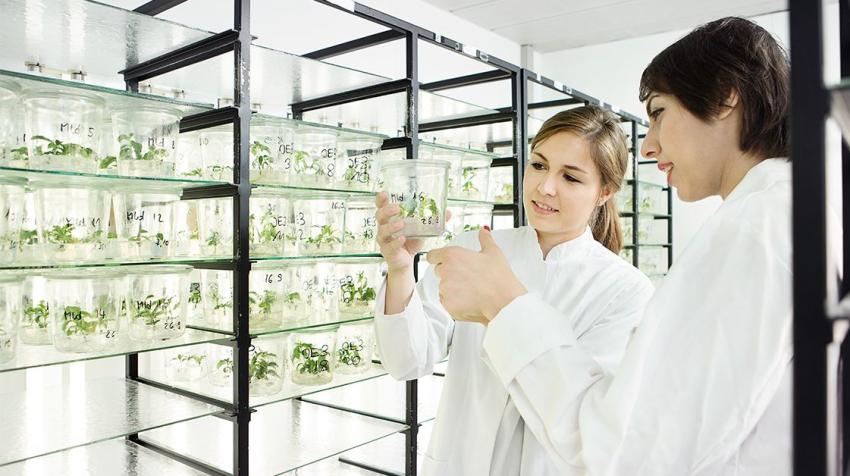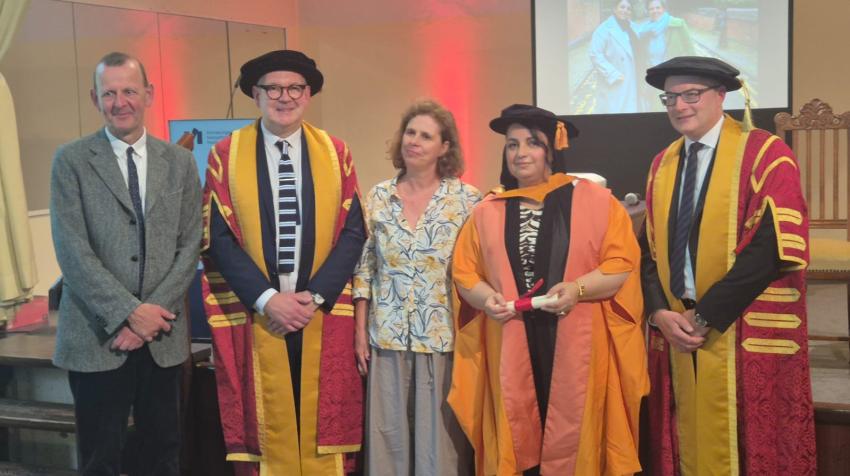“The intensification of the major drivers behind recent food insecurity and malnutrition trends (i.e., conflict, climate extremes, and economic shocks) combined with the high cost of nutritious foods and growing inequalities will continue to challenge food security and nutrition,” says one of the many conclusions of The State of Food Security and Nutrition in the World published this year by the Food and Agriculture Organization of the United Nations. The role of academia in countering these difficulties cannot be underestimated.
The Cluster of Excellence on Plant Science - CEPLAS, funded by the German Research Foundation, is a research cooperation initiative between the University of Cologne, a member institution of the United Nations Academic Impact (UNAI) in Germany, the Heinrich Heine University Düsseldorf, Max Planck Institute for Plant Breeding Research, and Forschungszentrum Jülich. It is also the only of its kind in that country. The Excellence Strategy has the overall objective of promoting research in German universities while fostering collaboration between different institutions.
Innovative strategies for crop improvement are required to ensure a sustainable supply of food, feed, and plant-based raw materials. Precisely, CEPLAS addresses these challenges through fundamental research on complex plant traits of agronomic relevance that impact on yield and adaptation to limited resources. This knowledge is essential for designing and breeding plants that react predictably to future challenges. And the key to understanding adaptability is the plant genome.
Genes control plant growth, development, and metabolic processes, such as converting light energy into chemical energy during photosynthesis. Genetic factors further control the structure of the beneficial plant microbiome and the defense against pathogenic microorganisms. CEPLAS research program is structured in four areas: (1) Optimizing plant performance; (2) Plant microbiota metabolic networks and edaphic adaptation; (3) Synthetic and reconstruction biology; and (4) Theoretical plant biology and data science.
According to their lead researchers, the Cluster’s research program contributes to advancing the Goals listed in the 2030 Agenda for Sustainable Development by providing knowledge on genetic factors that underpin crop resilience and avoidance of loss through abiotic factors, improving crop heat tolerance, studying the evolution and adaptation of crop plants, and employing biotechnological approaches that further the use of plant cell walls as renewable resources and on the characterization of adaptive molecular variation in natural plant systems.
“Fundamental plant science holds huge potential to achieve the Sustainable Development Goals through discovery and science-based solutions. Excellent fundamental plant science and interdisciplinary research are essential to developing knowledge-based strategies for food security, economic and environmental sustainability, and the mitigation of climate change”, commented Prof. Andreas Weber, speaker of the CEPLAS. Furthermore, the Cluster develops and promotes innovative training programs for early career scientists.
Actually, recent advances in technology and methodology demand a rethinking and redesign of plant science training. The focus will now be on interdisciplinary approaches and a broader knowledge of statistics and bioinformatics. CEPLAS programs integrate classic training courses with synthetic biology and computational methods training. In addition, the Cluster has implemented a new bachelor’s program in Quantitative Biology. Moreover, around fifty Ph.D. students work on their dissertation research at the post-graduate level.
Since the Neolithic Revolution, plant domestication has provided the basis for human population growth and, subsequently, the evolution of highly developed civilizations. Growing food demands resulting from continued population increase, and the effects of anthropogenic climate change pose significant challenges to sustainability, food security, and ecosystem maintenance. To ensure a sustainable supply of plant-based raw materials, also for future generations, innovative science-based strategies are needed that also minimize resource use and environmental impact.
CEPLAS unites nearly 150 researchers at all career levels in four institutions, the University of Cologne being one of them. Researchers collaborate in a highly interdisciplinary environment, with experimental scientists from plant genetics, breeding, developmental biology, plant biochemistry, as well as theoretical researchers from computational biology, synthetic biology, and modeling. This composition allows unique synergies for a comprehensive targeted study. And is an outstanding example of genuine academic and scientific cooperation.




